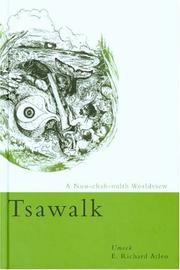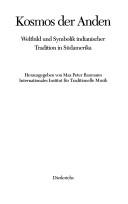| Listing 1 - 10 of 33 | << page >> |
Sort by
|
Book
ISBN: 9004676732 Year: 1974 Publisher: Leiden : BRILL,
Abstract | Keywords | Export | Availability | Bookmark
 Loading...
Loading...Choose an application
- Reference Manager
- EndNote
- RefWorks (Direct export to RefWorks)
Book
ISBN: 3129059601 Year: 1976 Publisher: Stuttgart Ernst Klett Verlag
Abstract | Keywords | Export | Availability | Bookmark
 Loading...
Loading...Choose an application
- Reference Manager
- EndNote
- RefWorks (Direct export to RefWorks)
Book
ISBN: 0452006023 Year: 1982 Publisher: New York (N.Y.) New American library
Abstract | Keywords | Export | Availability | Bookmark
 Loading...
Loading...Choose an application
- Reference Manager
- EndNote
- RefWorks (Direct export to RefWorks)
Book
ISBN: 9780199314621 9780199314621 0199314624 9780197503812 9780190885007 9780190253127 Year: 2017 Publisher: New York: Oxford university press,
Abstract | Keywords | Export | Availability | Bookmark
 Loading...
Loading...Choose an application
- Reference Manager
- EndNote
- RefWorks (Direct export to RefWorks)
The Oxford Handbook of Indian Philosophy tells the story of philosophy in India through a series of exceptional individual acts of philosophical virtuosity. It brings together forty leading international scholars to record the diverse figures, movements, and approaches that constitute philosophy in the geographical region of the Indian subcontinent, a region sometimes nowadays designated South Asia. The volume aims to be ecumenical, drawing from different locales, languages, and literary cultures, inclusive of dissenters, heretics and sceptics, of philosophical ideas in thinkers not themselves primarily philosophers, and reflecting India's north-western borders with the Persianate and Arabic worlds, its north-eastern boundaries with Tibet, Nepal, Ladakh and China, as well as the southern and eastern shores that afford maritime links with the lands of Theravda Buddhism. Indian Philosophy has been written in many languages, including Pali, Prakrit, Sanskrit, Malayalam, Urdu, Gujarati, Tamil, Telugu, Bengali, Marathi, Persian, Kannada, Punjabi, Hindi, Tibetan, Arabic and Assamese. From the time of the British colonial occupation, it has also been written in English. It spans philosophy of law, logic, politics, environment and society, but is most strongly associated with wide-ranging discussions in the philosophy of mind and language, epistemology and metaphysics (how we know and what is there to be known), ethics, metaethics and aesthetics, and metaphilosophy. The reach of Indian ideas has been vast, both historically and geographically, and it has been and continues to be a major influence in world philosophy. In the breadth as well as the depth of its philosophical investigation, in the sheer bulk of surviving texts and in the diffusion of its ideas, the philosophical heritage of India easily stands comparison with that of China, Greece, the Latin west, or the Islamic world.
Indian philosophy. --- Indians --- Philosophy, Indian --- Philosophy --- E-books --- Indian philosophy --- India --- Philosophy, Indic.
Book
ISBN: 9877227665 Year: 2020 Publisher: Buenos Aires : CLACSO,
Abstract | Keywords | Export | Availability | Bookmark
 Loading...
Loading...Choose an application
- Reference Manager
- EndNote
- RefWorks (Direct export to RefWorks)
Filosofía --- Philosophy, West Indian. --- West Indian philosophy

ISBN: 077481084X Year: 2004 Publisher: Vancouver University of British Columbia press
Abstract | Keywords | Export | Availability | Bookmark
 Loading...
Loading...Choose an application
- Reference Manager
- EndNote
- RefWorks (Direct export to RefWorks)
Creation --- Indian mythology --- Indian philosophy --- Nootka mythology --- Mythology
Book
ISBN: 9004397795 Year: 2002 Volume: v. 3 Publisher: Brill Academic Publishers
Abstract | Keywords | Export | Availability | Bookmark
 Loading...
Loading...Choose an application
- Reference Manager
- EndNote
- RefWorks (Direct export to RefWorks)
Sohail Inayatullah takes us on a journey through Indian philosophy, grand theory and macrohistory. We understand and appreciate Indian theories of history, specifically cyclical and spiral theories of time. From other civilizations, we learn how seminal thinkers understood the stages and mechanisms of transformation. Ssu-Ma Chien, Ibn Khaldun, Giambattista Vico, George Wilhelm Friedrick Hegel, Oswald Spengler, Comte Pitirim Sorokin, and Michel Foucault are invited to a dialog on the nature of agency and structure, and the escape ways from the patterns of history. But the journey is centered on P.R. Sarkar, the controversial Indian philosopher, guru and activist. While Sarkar passed away in 1990, his work, his social movements, his vision of the future remains ever alive. Inayatullah brings us closer to the heart and head of this giant luminary. Through Understanding Sarkar , we gain insight into how knowledge can transform and liberate. This publication has also been published in paperback, please click here for details.
Sarkar, Prabhat Ranjan, --- Political and social views. --- Indian philosophy.

ISBN: 3424012025 Year: 1994 Publisher: München Diederichs
Abstract | Keywords | Export | Availability | Bookmark
 Loading...
Loading...Choose an application
- Reference Manager
- EndNote
- RefWorks (Direct export to RefWorks)
Indian philosophy --- Indians of South America --- Andes Region --- Civilization.
Book
ISBN: 3466361087 Year: 1990 Publisher: München Kösel
Abstract | Keywords | Export | Availability | Bookmark
 Loading...
Loading...Choose an application
- Reference Manager
- EndNote
- RefWorks (Direct export to RefWorks)
Indian philosophy --- Indians of North America --- Public opinion --- Religion

ISBN: 9978044280 9789978044285 Year: 1998 Publisher: Abya-Yala
Abstract | Keywords | Export | Availability | Bookmark
 Loading...
Loading...Choose an application
- Reference Manager
- EndNote
- RefWorks (Direct export to RefWorks)
Indian philosophy --- Quechua philosophy --- Aymara philosophy --- Aymara Indians --- Philosophy, Aymara --- Philosophy, Bolivian --- Philosophy, Peruvian --- Philosophy, Quechua --- Quechua Indians --- Philosophy --- Indian philosophy - Andes Region
| Listing 1 - 10 of 33 | << page >> |
Sort by
|

 Search
Search Feedback
Feedback About UniCat
About UniCat  Help
Help News
News